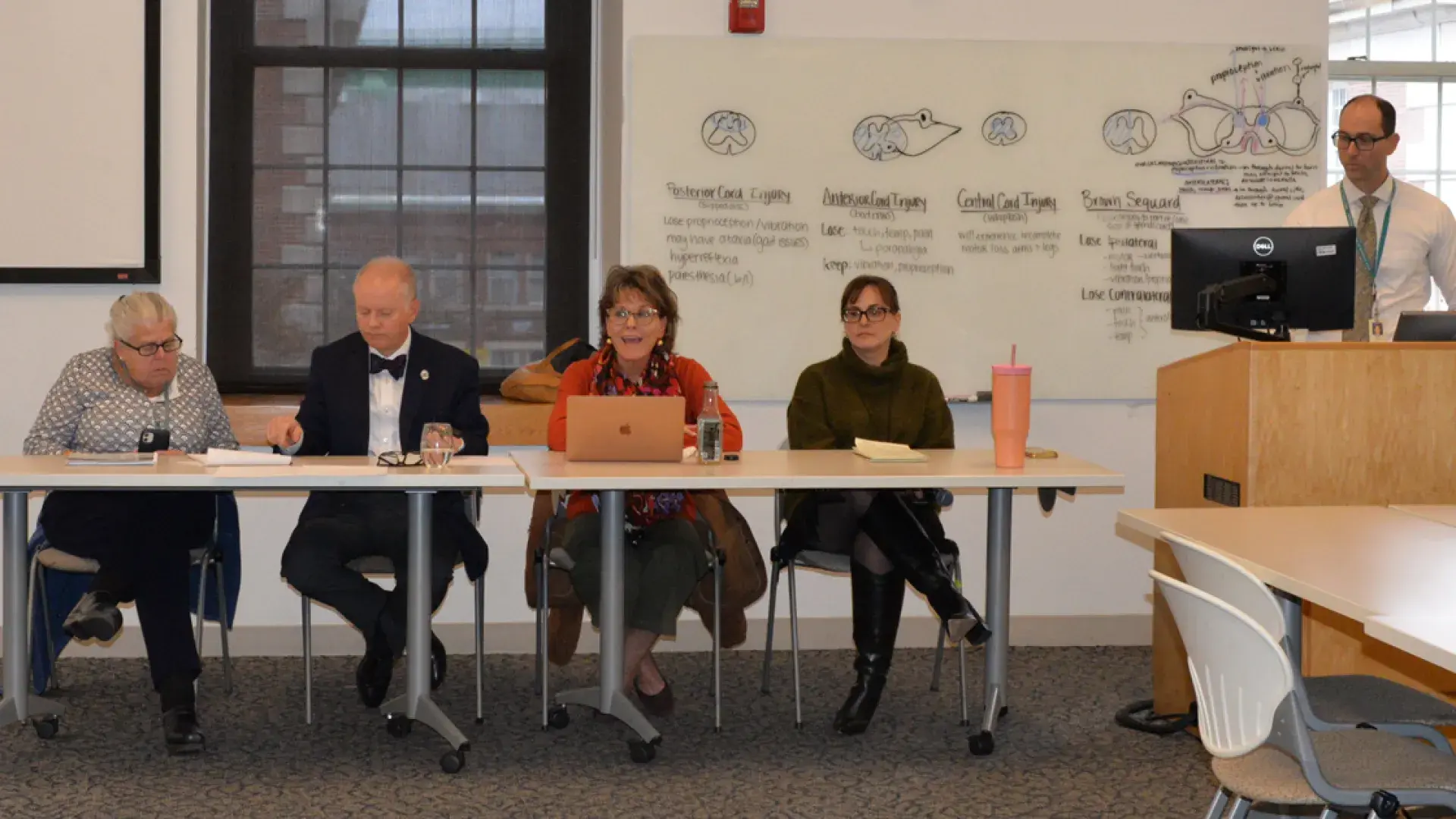
Faculty panel discusses what healthcare practitioners should know for next week’s election
With so much focus on who will be the next president, it’s easy to overlook the importance of other races and ballot measures on healthcare policies that will have consequences for healthcare providers and their patients. To help educate the MGH Institute community, a panel of MGH Institute faculty members took part in “What’s at Stake for Health Care in the 2024 Elections”, a panel discussion held Tuesday that was organized by the Office of the Provost.
During the one-hour conversation in Shouse, more than 70 in-person attendees and others online listed as four faculty experts discussed about what to consider as healthcare providers when preparing to vote in federal, state, and local elections.
“It’s not just about the presidential election,” said panelist Jane Baldwin, an assistant professor of physical therapy who leads sessions on health policy and advocacy. “It’s really about the congressional races as well.”
Those races will determine who controls the House and Senate, which will be voting on bills related to cuts in the Medicare fee schedule and whether Medicare will continue to cover telehealth services for physical therapy and occupational therapy. Several OT students and faculty were just in Washington D.C. to meet with legislative staffs on these issues. Baldwin recommends looking at the voting record of senators and representative to see how they have voted, if they have been absent, and whether they are active participants in the issue.
While there are bills that are clearly related to healthcare, like the Affordable Care Act (ACA), panelist Alex Hoyt, an associate professor in the School of Nursing who teaches courses on politics, healthcare policy and economics, told the audience that even bills unrelated to healthcare might influence healthcare.
“In 2022, Congress passed 268 laws,” said Hoyt. “Some of those are going to be bold vision types of legislation like ACA but some of things that pass quietly and there might be small provisions in there that have a big impact on healthcare.”
That can make understanding which bills might be important for healthcare professionals to know about difficult. Hoyt points to the Kaiser Family Foundation as a resource for learning more about healthcare related legislation.
There are also important implications in state elections. Medicaid has federal level regulations and guidelines but panelist Lisa Moran, assistant director of external clinical education with the Department of Communications Sciences and Disorders who teaches seminars advocacy and healthcare insurance and reimbursements, says that each state chooses how those regulations and guidelines are interpreted.
As a result, “Medicaid can look different state to state and can have very different programs … to determine who is eligible, what benefits are paid out, how healthcare workers are reimbursed and at what rates they’re reimbursed,” explained Moran.
Some state elections also feature ballot measures that relate to healthcare. Elissa Ladd, a professor and former director of the interprofessional Global Health Equity and Innovations Certificate Program in the School of Nursing, shared that there are 11 state measures concerning abortion or reproductive rights. She says is important for people to understand these measures and brought up a citizen initiative measure in Massachusetts to explain.
“In Massachusetts, we have the legalization regulation of psychedelic substances,” said Ladd. “I really encourage people to read about this because there is a lot of nuance to it. I think it behooves as all to know how our ballot initiative compares to the other two states that have legalized or decriminalized psychedelics.”
She recommends going to Ballotpedia to understand more about particular ballot measures before voting.
All four panelists suggested citizens do more to understand who and what they are voting for and to become more active. “The more we know and the more we think about the resources and the biases we ourselves are having when we read those resources, the more opportunities we have to use our voice,” said Moran.
The recording of the panel is available to view and other election resources are available from the JEDI Office.
Do you have a story the Office of Strategic Communications should know about? If so, let us know.
